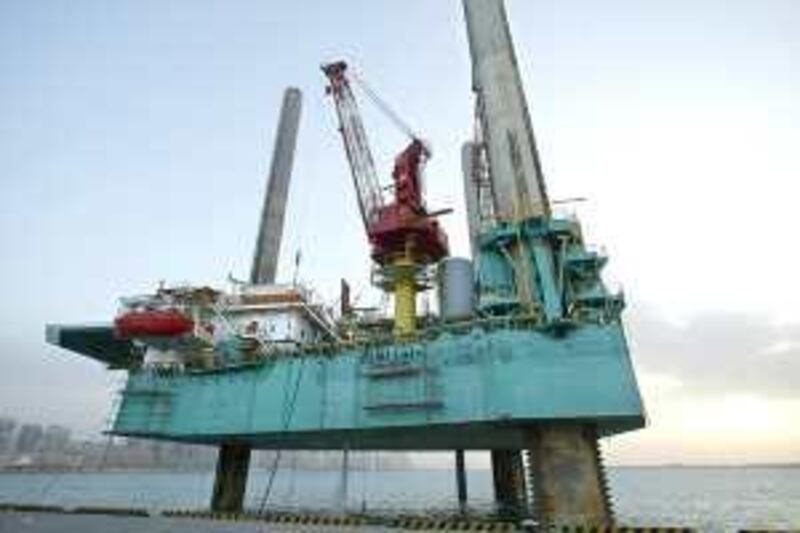Back in November, when I was with Citigroup, I projected that GCC members would face deficits this year, the first time since the current oil boom began in 2003. At that time, oil had just dipped below the US$50-a-barrel level and was already down two thirds in just four months. There was, understandably, some consternation. Indeed, compared with surpluses that were expected for last year when all the accounts were in, the projected deficits in the region would amount to quite a turnaround. And here we are today staring at fiscal deficits throughout the region.
But this is not about being prescient. The important issue is whether deficits really matter. The answer is, no. Not for members of the GCC, anyway. One thing must be clearly understood: deficits are "bad" because they require financing; particularly when financing involves borrowing. This is a challenge for most countries, especially in today's environment where funding has dried up substantially.
For this reason, financial analysts have been trained to look at deficits with suspicion. They ask: "Will a country with a fiscal deficit be able to finance subsequent deficits?"; or, "is the external deficit more binding than the fiscal imbalance?"; or, "are domestic policies providing comfort to foreign and domestic financiers?" None of this is a real issue for the GCC. Since deficits are a problem only when financing is scarce and the imbalance is likely to persist, the GCC can easily brush it off.
Firstly, the sovereign wealth funds (SWF) maintained by member countries, especially the established ones such as the Abu Dhabi Investment Authority (ADIA), Saudi Arabian Monetary Agency (SAMA) and Kuwait Investment Authority (KIA) that have slowly built up funds from past savings, can easily underwrite all the financing required. Secondly, with oil prices edging up and likely to stay firm (keeping in mind the intrinsic value of oil as the primary source of energy in the global economy), the deficits this year should become surpluses next year.
In fact, oil prices have already seen the worst of the global economic crisis and should now find their fair value in the remaining part of this year. What that level should be is open to interpretation, of course. King Abdullah of Saudi Arabia feels this should be a price of about $75 a barrel. On an average basis, we might find that the price could be between $60 and $65 a barrel. In the arcane world of economics, there is something called the "permanent income hypothesis". According to this, rational economic agents will base consumption over the income stream they expect in their lifetime.
On this basis, members of the GCC should continue to spend on diversification of their economies, irrespective of the temporary deficits that are created. In other words, they should not be scared off from investing. For even if the deficits are financed by borrowing - and not the deep pockets of SWFs - foreign lenders will not think twice in view of the massive hydrocarbon reserves this region has.
Furthermore, since the GCC has already captured global attention for its sustained high growth, foreign lenders will also value the partnership of working with GCC governments. But as with all things, there is a catch. The spectacular economic growth in Dubai is very different from growth in economies such as those of Saudi Arabia, Qatar and Kuwait, for example. There is also differences in the hydrocarbon endowment. While Dubai remains the most diversified economy in the region and also provides the UAE its status as a financial centre, it is sometimes viewed as a separate entity in the eyes of foreign analysts and investors. Hence, deficits could matter.
This raises a set of questions: Will revenues bounce back as oil prices rise?; is the repayment capacity an issue - or do SWFs make this irrelevant?; and how dependent is domestic growth on the global economy? If the answers are, respectively, "yes", "no", and "not much", then deficits are not an issue. For those economies that answer differently, however, their profile would tend to be less like that of the GCC generally.
Part of the uncertainty about Dubai's economy revolves around this issue. Abu Dhabi is definitely a typical GCC economy, having as it does large oil reserves and a large SWF profile. Although dependency in oil often is perceived as a structural weakness, under the current circumstances, it is almost a saviour. Therefore, the question about deficits is really an issue of oil revenues, with the underlying assumption that oil is - and will remain - a very precious commodity. By this understanding, however, Dubai is seen to have limited oil and is more vulnerable, but it also has indirect support from Abu Dhabi.
And from what can be seen from the role the UAE Central Bank has played in underwriting Dubai's bond issue, this should allow Dubai to ride the GCC recovery as oil prices firm up and deficits turn to surpluses. So to pose the question again, do deficits matter? It depends. But in the case of the GCC, even with economic and oil endowment variations, they do not pose such a worry after all. Mushtaq Khan is an independent economist, and was previously with Citigroup and ABN AMRO Bank. He was also an economic adviser at Pakistan's central bank.





